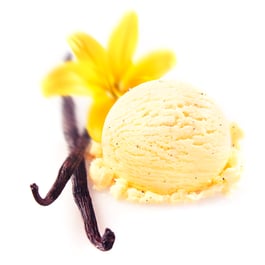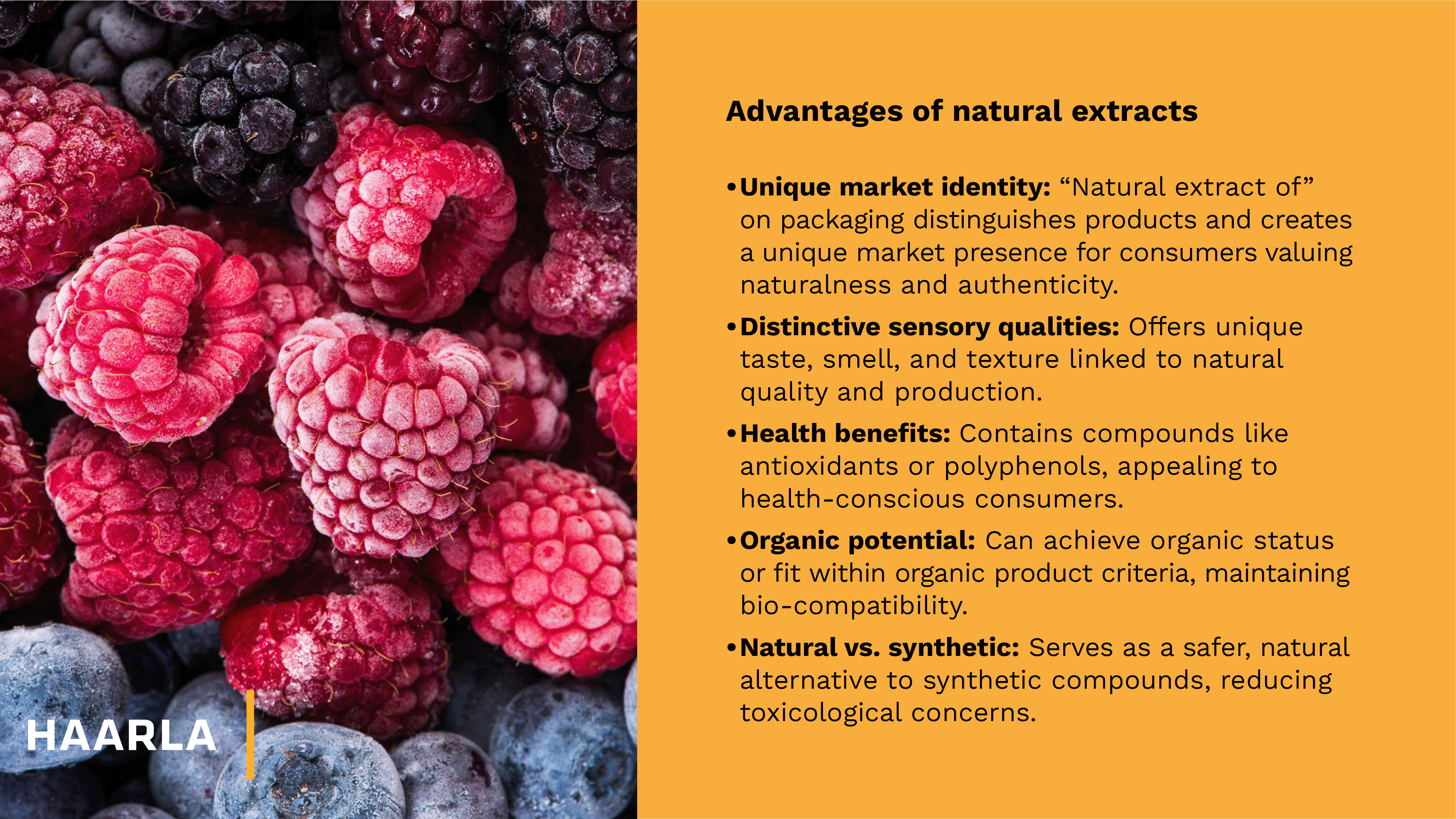Consumers are increasingly interested in natural, healthy, and environmentally friendly foods and beverages. To stay on top of competition, many manufacturers have turned to natural alternatives and clean label solutions. One way to strengthen the authenticity and increase the health benefits of your products is to use more and better natural extracts to flavor them. Metarom, Haarla’s partner in all things extracts, has over 70 years of experience in creating the purest extracts for the food industry.
According to the ISO 9235 standard, an extract is a product obtained by treating a natural raw material, of plant or animal origin, with one or more solvents. With the use of extracts, the positive properties of plants can be included in foods or beverages. Unlike artificial flavors, natural extracts can be used to add beneficial compounds, such as antioxidants, vitamins, and polyphenols, to the final product.
Natural extracts - the art of extraction
The selection and sourcing of the raw material as well as expertise on the extraction methods are of outmost importance when developing high-quality extracts.
There is no universal extraction technique that fits all purposes; the type of raw material and the desired outcome need to be considered. For example, distillation – an extraction method that employs steam and results in essential oils – is suitable for treating many aromatic herbs, such as mint, sage, and rosemary, as well as for citrus fruits.

Using natural extracts offers a number of advantages in the food industry. The words “natural extract of” can be used on product packaging to create a differentiating positioning. What’s more, natural extracts are ideal for giving a product a positive image, as they are synonymous with naturalness and authenticity for consumers. (Source: Metarom)

Infusion method, which refers to extracting the plant in a hot or cold solvent, is suitable for plants like vanilla. Carbon dioxide supercritical extraction, in turn, is fitting for extracting essential oils, volatile compounds, and even antioxidants from a wide range of different plants. The use of carbon dioxide makes it possible to obtain products without solvent residue. Mechanical pressure is used to extract vegetable oils from aromatic nuts and seeds, such as coriander seeds.

The most commonly recognized form of vanilla used in recipes or formulations is vanilla extract. Vanilla beans undergo maceration in alcohol to extract not only vanillin but also thousands of other aromatic compounds from the cured beans. Metarom's commercial vanilla extract is offered in various strengths to suit different preferences.
The extracts can have solid or liquid consistency, for example, oil, powder, resin, or butter. After the extraction, the quality of the product is carefully controlled at the Metarom laboratories, and the extract is packaged in a way that preserves its properties.
Natural extracts - core advantages
The phrase "natural extract of" on your packaging not only sets you apart but establishes a unique positioning in the market. What’s more, natural extracts are ideal for giving a product a positive image, as they are synonymous with naturalness and authenticity for consumers.
- They provide a unique organoleptic signature (directly linked to varietal quality and the production process);
- They provide beneficial properties, since certain plant extracts contain compounds that are beneficial to health, such as antioxidants or polyphenols;
- They can be organic if the raw materials and solvents used to make them are organic. However, if this is not the case, they are bio-compatible. In other words, they fall within the 5% of non-organic ingredients contained in an organic product.

Where quality ingredients meet expertise
Even with the most advanced R&D processes, we cannot control nature. The chemical composition of plants varies depending on external factors such as season, weather, and harvesting conditions. Some of these variabilities can be avoided by always sourcing the raw material from the same region, but phenomena such as climate change can affect the crops and may lead to fluctuations in both prices and product properties. Achieving the unique organoleptic signature of an extract year after year is therefore an art that requires both skill and flexibility.
As a Haarla customer, you get access to the 200+ references that Metarom has created in-house. Many custom-developed extracts are also available for different consumer needs, including vegan, Halal, and Kosher.
If you want to learn more about the uses of extracts and discuss their potential applications in your production, the experts in our Food team are at your service.


